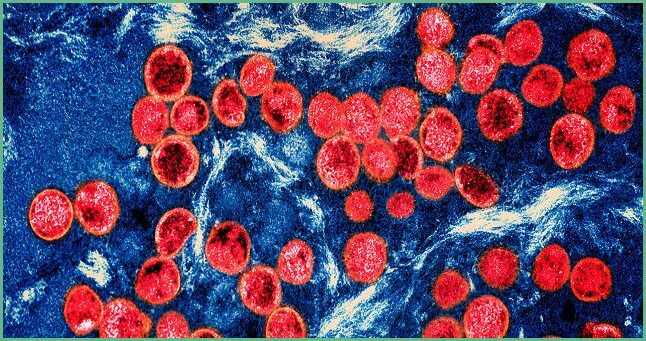Severe Monkeypox (mpox) Strain Confirmed in Los Angeles
Los Angeles health officials confirmed on Thursday that a severe strain of the Monkeypox (mpox) virus has been identified in the county. Authorities say they are investigating cases and working to contain spread while monitoring any rise in hospitalizations. Neighbors and clinics have been notified as part of expanded testing and tracing efforts.
Monkeypox is a viral illness related to smallpox, typically causing fever, swollen lymph nodes, and a distinctive rash that progresses to blister-like lesions. It usually runs its course in a few weeks, but complications can occur, especially in people with weakened immune systems. Public health teams use clinical exams, PCR testing, and contact tracing to manage outbreaks.
Mpox spreads primarily through close physical contact with an infected person’s lesions, contaminated materials like bedding or clothing, and prolonged face-to-face exposure to respiratory droplets. It is not as easily airborne as some respiratory viruses, but proximity matters. Avoiding direct skin-to-skin contact with suspected cases remains the clearest prevention step.
Officials flagged this particular strain as severe because early reports suggest it may be linked to more intense symptoms or complications; investigators are sequencing samples to learn more. That work will determine whether this strain behaves differently in terms of transmissibility or clinical impact. Until lab results are complete, health leaders are treating the situation with heightened caution.
The Los Angeles public health apparatus is ramping up testing, alerting clinics, and expanding contact tracing to find potential exposures quickly. Vaccination campaigns and targeted outreach to at-risk communities are being coordinated with state and federal partners. Health departments say they are also ensuring clinicians have guidance on diagnosis, isolation, and treatment options.
Typical early signs include fever, chills, swollen glands, and fatigue, followed by the rash that can appear on the face, hands, or genital area. If you develop a suspicious rash or have known exposure, isolate from others and contact a healthcare provider promptly for testing. Do not attempt to treat or cover lesions without medical guidance, and avoid sharing towels or bedding.
For most people, supportive care manages symptoms, but antiviral medications such as tecovirimat may be used in severe cases under medical supervision. Hospital care might be required for complications like secondary infections or severe pain. Clinicians will evaluate risk factors when deciding on antiviral therapy and isolate patients until they are no longer contagious.
People with weakened immune systems, pregnant people, young children, and those with certain skin conditions face higher risk for serious illness. Outreach efforts are focused on ensuring these groups have access to testing, treatment, and preventive vaccines where indicated. Community organizations and clinics are being asked to prioritize information and services for vulnerable populations.
Testing typically involves swabs of lesions sent to public-health or commercial laboratories, and turnaround times can vary depending on demand. If testing is limited locally, officials may recommend quarantine or presumptive isolation while results are pending. Stay in touch with your provider about where to get tested and what steps to take while you wait.
Avoid close skin contact with anyone who has unexplained sores, wash hands frequently, and clean shared surfaces and laundry with care. If you work in healthcare or with at-risk groups, follow recommended personal protective equipment guidance and report suspected cases immediately. Vaccination may be advised for certain contacts and occupational groups; check with public health for eligibility.
Investigators are sequencing virus samples and reviewing clinical records to understand the scope and origin of this outbreak in Los Angeles. They will release findings as data becomes available and adjust guidance based on new evidence. In the meantime, officials emphasize vigilance rather than alarm to limit spread.
If you live in Los Angeles and have symptoms or potential exposure, isolate from others and contact your healthcare provider or local health department right away for testing and guidance. Follow instructions on isolation and care, and keep household members informed so they can take precautions.



